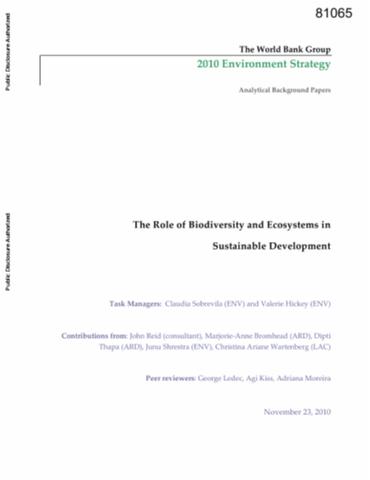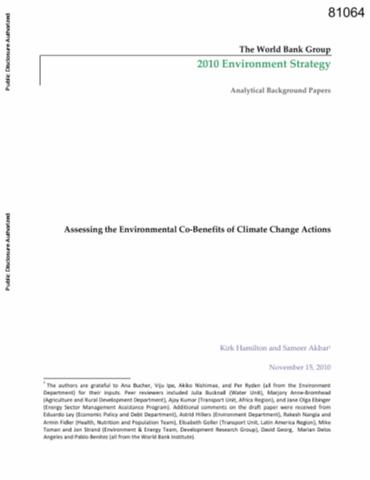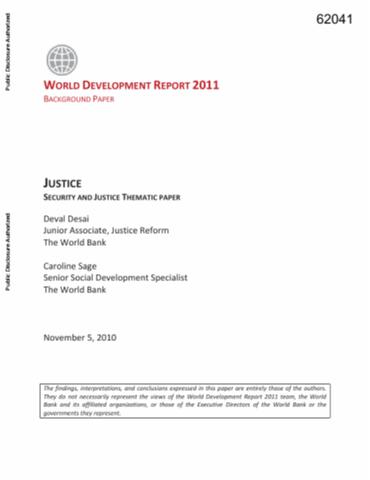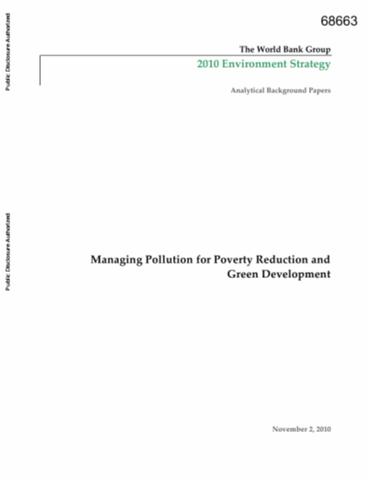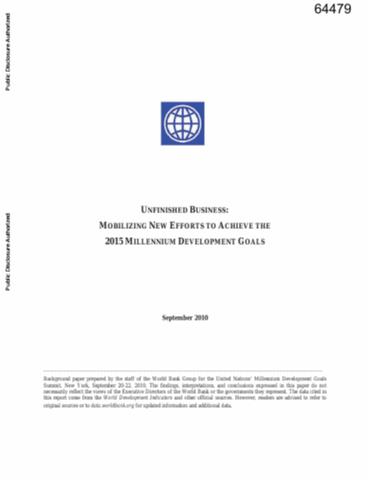The World Bank is a vital source of financial and technical assistance to developing countries around the world. We are not a bank in the ordinary sense but a unique partnership to reduce poverty and support development. The World Bank Group has two ambitious goals: End extreme poverty within a generation and boost shared prosperity.
- To end extreme poverty, the Bank's goal is to decrease the percentage of people living on less than $1.25 a day to no more than 3% by 2030.
- To promote shared prosperity, the goal is to promote income growth of the bottom 40% of the population in each country.
The World Bank Group comprises five institutions managed by their member countries.
The World Bank Group and Land: Working to protect the rights of existing land users and to help secure benefits for smallholder farmers
The World Bank (IBRD and IDA) interacts primarily with governments to increase agricultural productivity, strengthen land tenure policies and improve land governance. More than 90% of the World Bank’s agriculture portfolio focuses on the productivity and access to markets by small holder farmers. Ten percent of our projects focus on the governance of land tenure.
Similarly, investments by the International Finance Corporation (IFC), the World Bank Group’s private sector arm, including those in larger scale enterprises, overwhelmingly support smallholder farmers through improved access to finance, inputs and markets, and as direct suppliers. IFC invests in environmentally and socially sustainable private enterprises in all parts of the value chain (inputs such as irrigation and fertilizers, primary production, processing, transport and storage, traders, and risk management facilities including weather/crop insurance, warehouse financing, etc
For more information, visit the World Bank Group and land and food security (https://www.worldbank.org/en/topic/agriculture/brief/land-and-food-security1
Resources
Displaying 4651 - 4655 of 4907The Role of Biodiversity and Ecosystems in Sustainable Development
Biologically diverse ecosystems in countries served by the World Bank provide an array of valuable economic services. While the benefits of conserving ecosystems frequently outweigh the costs, conversion of these ecosystems to other uses occurs anyway, because many ecosystem benefits are of a public good nature, without markets that would reflect their real value.
Assessing the Environmental Co-Benefits of Climate Change Actions
This internal background paper has been prepared to help inform the 2010 environment strategy with respect to a proposed way forward on use of country systems. The World Bank Group environment strategy is built on three pillars: leveraging natural resources for growth and poverty reduction; managing the environmental risks to growth and development; and transforming growth paths. As part of its exploration of these three pillars, the strategy considers the question of environmental co-benefits of climate change actions.
Justice
There is broad recognition, across the political spectrum and in both 'northern' and 'southern' countries, that justice reform, and more generally the promotion of the 'rule of law', are central to development policy, particularly in conflict-affected, fragile and violent contexts. More recently an increased focus on global security and the interaction between security and development as put a renewed emphasis on such efforts.
Managing Pollution for Poverty Reduction and Green Development
The World Bank Group (WBG) has been active in public and private sector pollution management for the past several decades. The Bank has mainstreamed environmental health concerns into its rural and urban services through projects that improved the management of solid and hazardous waste and wastewater, and controlled pollution related to a large variety of sectors including transport, industry, energy, and mining, with each decade having its flagship issues and projects.
Unfinished Business
Backed by sound economic policies and until the global crisis, a buoyant global economy, many developing countries made significant movement toward achieving the 2015millennium Development Goals (MDGs), particularly those for poverty reduction, gender parity in education, and reliable access to safe water. But even before the global economic crisis, progress in achieving some MDGs, especially those on child and maternal mortality, primary school completion, hunger, and sanitation, was lagging. The global food, fuel and economic crises have set back progress to the MDGs.






